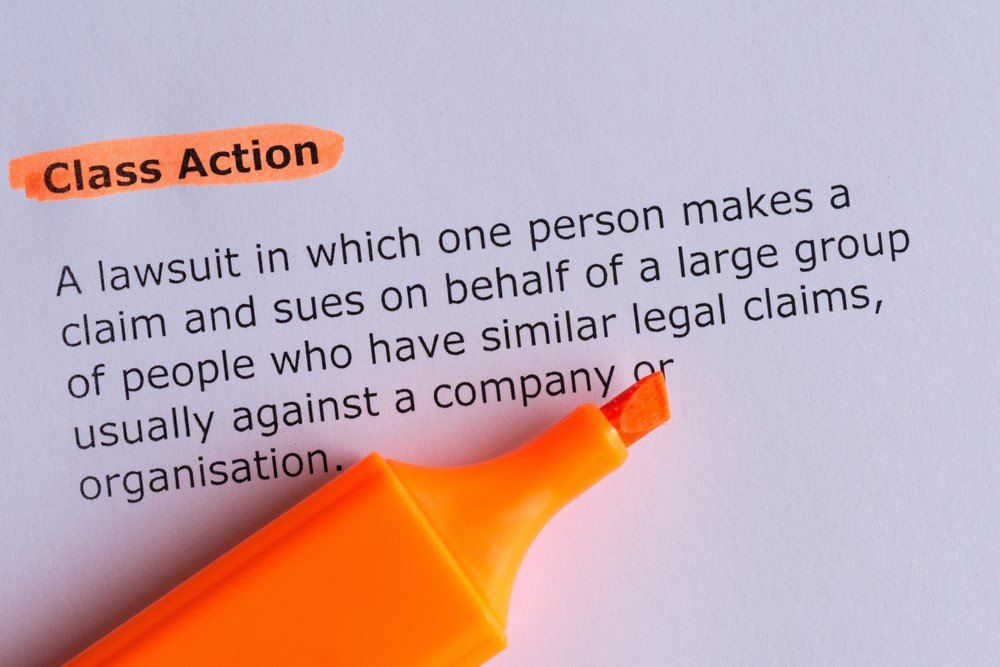BioVie Class Action Lawsuit Unveiled: Your Legal Resource
Demystifying Class Activity Claims: A Closer Appearance at Legal Process
Class activity suits can be intimidating and complicated, typically shrouded in a shroud of enigma for those unknown with the legal proceedings included. From understanding the standards for course activity eligibility to the duty of class agents, and from the procedure of course certification to the resolution of these lawsuits, we will certainly unwind the ins and outs and shed light on the inner workings of this legal system.
Comprehending Class Action Lawsuits
Comprehending Course Action Lawsuits calls for an extensive exam of the lawful procedures associated with cumulative lawsuits. Class activity lawsuits are a sort of lawful action where a team of people with similar claims or complaints collaborate to launch a suit versus an usual accused. This type of lawsuits permits individuals with restricted resources to collectively look for justice, as it integrates the stamina of several individual insurance claims right into a solitary lawsuit.
The procedure starts with the recognition of a lead plaintiff or course agent who files the preliminary issue on part of the whole class. The court then figures out whether the case fulfills the needs for class accreditation, that include commonness, numerosity, typicality, and adequacy of representation. If licensed, the court alerts possible class members, offering them a chance to opt-out if they desire to seek their insurance claims independently.
As soon as the class is accredited, the litigation proceeds with different phases, including discovery, movement technique, and, if essential, test. The end result of the lawsuit can result in a settlement or a judgment, which is binding on all course members unless they select to opt-out. Course activity claims can incorporate a large range of lawful concerns, such as customer security, safety and securities scams, work discrimination, and ecological harm.
Comprehending the subtleties of class activity lawsuits is vital for both defendants and plaintiffs associated with cumulative lawsuits. It needs a complete understanding of the legal needs for accreditation, the legal rights and commitments of course members, and the potential benefits and dangers connected with protecting or seeking against course action claims.
Identifying Course Action Qualification
To figure out whether a lawsuit certifies as a class activity suit, details standards must be fulfilled. These standards are designed to ensure that the case can sufficiently represent the rate of interests of a big group of individuals who have experienced similar injury or have been affected by the exact same problem. The crucial consider identifying course activity qualification is the visibility of a typical question or issue that impacts all prospective course members.
First of all, a class activity suit calls for numerosity, which indicates there have to be a significant variety of potential course members involved. This guarantees that a course action is a reliable way to solve the insurance claims of a large team of individuals, as opposed to having everyone submit a specific legal action.
Secondly, there have to be commonness among the cases of the potential course members. This implies that there need to be an usual inquiry of law or fact that is main to the situation. If each prospective class member's insurance claim is unconnected and special to the others, a course activity may not be proper.

The Duty of Course Representatives
Course representatives play an important function in class activity lawsuits by representing the rate of interests of the whole class. These people are picked from within the class to serve as the public face of the claim and are responsible for making choices in support of all class participants. The role of class reps includes various obligations and obligations throughout the legal procedures.
One of the key obligations of class representatives is to give information and help to their fellow class members. They act as a point of get in touch with and communication in between the class participants and the attorneys representing them. This consists of maintaining the course participants informed around important updates, answering their inquiries, and resolving any problems they might have.
Class reps likewise have the duty to proactively take part in the litigation process (Assertio class action lawsuit). This involves working closely with the attorneys to create lawful techniques, collecting proof, and offering statement if required. They should be actively associated with all facets of the instance to ensure that the most effective rate of interests of the entire course are stood for
In addition, course agents are accountable for authorizing settlements or other resolutions gotten to in go to my blog the suit. They have to thoroughly review the terms of the negotiation and make a decision that remains in the most effective interest of the whole course. This decision-making process requires cautious consideration and assessment with the class participants.
The Process of Course Qualification
The procedure of licensing a class in a course action suit includes a thorough analysis of particular criteria to establish if the situation satisfies the necessary demands for course accreditation. Class certification is a crucial action in the litigation procedure as it establishes whether a suit can continue as a class activity, allowing a huge team of individuals with comparable claims to be represented jointly by one or a few individuals.
To get class qualification, the plaintiff has to demonstrate that the suggested class satisfies specific requirements. Typicality requires that the claims or defenses of the course representatives are typical of those of the class. Competence of representation makes sure that the class representatives will relatively and appropriately secure the interests of the class.
The court will certainly scrutinize these standards and the plaintiff's proof to figure out if the suggested course fulfills the necessary demands. The court might additionally think about various other elements, such as whether a class activity is the premium approach to deal with the dispute and whether the course is completely natural.

Once the court grants class qualification, the legal action can continue as a course action, allowing the complainants to collectively seek relief and potentially obtain a judgment or negotiation that profits the entire course.
Dealing With Course Activity Claims
As soon as course accreditation has been given, the following step in solving a class activity legal action is to browse the procedure of lawsuits or settlement arrangements. Litigation refers to the legal process in court, where the complainant's lawyer offers proof and arguments to support their claims, and the offender's lawyer counters with their own proof and debates. This procedure can include various phases, such as pretrial activities, discovery, and trial.
On the other hand, negotiation arrangements entail conversations in between the celebrations to get to a mutually appropriate resolution without mosting likely to test. BioVie class action lawsuit. Settlement uses may be made at any type of stage of the litigation process, and if both image source parties concur, a negotiation arrangement is reached. This arrangement usually describes the terms and problems of the settlement, consisting of any type of monetary settlement, injunctive relief, or other treatments. When the settlement is settled, it is presented to the court for approval.
Final Thought
In conclusion, class activity legal actions play a vital function in offering justice and settlement to big teams of individuals who have been hurt by the same entity. By selecting and licensing a course course representatives, the legal process ends up being much more easily accessible and efficient for the plaintiffs. Dealing with these claims can be a facility and lengthy process, however it is important in holding corporations liable for their activities and making certain reasonable end results for all influenced events.
From recognizing the requirements for course action eligibility to the duty of course reps, and from the process of course qualification to the resolution of these legal actions, we will certainly untangle the ins and outs and dropped light on the inner workings of this lawful system. The essential factor in determining course action qualification is the visibility of a typical question or concern that read what he said influences all potential course members.
If each possible class participant's claim is unrelated and special to the others, a course action might not be suitable.
Class representatives play a crucial function in course activity legal actions by standing for the rate of interests of the whole course.When class qualification has actually been given, the next step in settling a class action lawsuit is to navigate the process of litigation or negotiation negotiations.